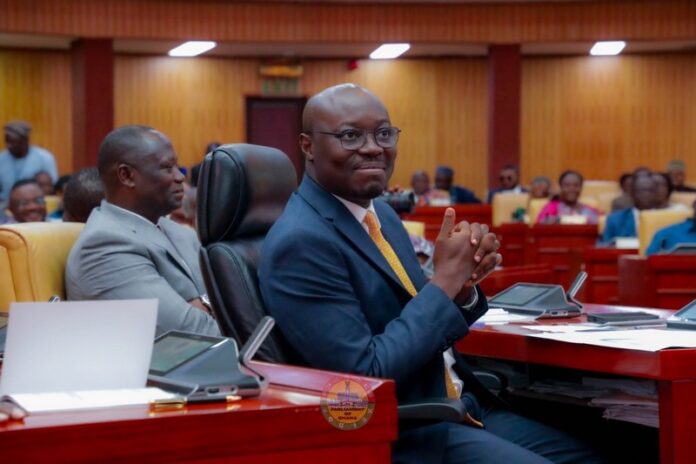The Government of Ghana has formally notified the International Monetary Fund (IMF) of its decision to cap public sector wage increases at 10 percent this year, as part of broader expenditure rationalization measures under its ongoing economic reform programme.
The disclosure is contained in the Fund’s latest review report of Ghana’s 36-month Extended Credit Facility Programme, which is expected to conclude in 2026.
“On the expenditure side, the 2025 Budget comprises measures that aim at containing primary expenditure, including capping public sector wage increases to 10 percent,” Ghanaian authorities informed the IMF.
This development comes ahead of the presentation of the 2025 Mid-Year Budget Review by Finance Minister Dr. Cassiel Ato Forson, scheduled for tomorrow, January 24, 2025.
Official data from the finance ministry indicate that Ghana’s public sector wage bill is projected to cross $7 billion, consuming more than 30% of the country’s projected revenue and grants this year.
The current wage cap means salary increments for public sector workers will not exceed 10 percent in 2025.
The government has also outlined plans to limit spending on goods and services, streamline the operations of statutory funds, eliminate low-impact expenditure programmes, and carefully manage the pace of foreign-financed capital projects.
“Spending on goods and services will be limited, operations of several statutory funds rationalized, and programmes with limited value-for-money eliminated,” the government assured the Fund. “Execution of foreign-financed investments will be carefully paced, while social benefits will be expanded.”
In addition, the government has allocated what it described as “limited additional funding” — estimated by IMF staff to be less than 0.1 percent of GDP to support health and agriculture programmes, in a bid to partially offset reductions in development assistance from USAID.
Ghanaian authorities also disclosed that a comprehensive audit of the country’s accumulated domestic arrears is underway. Preliminary findings suggest that a significant portion of the arrears may lack valid supporting documentation, raising the possibility of a downward revision.
Already, government has made it clear in the 2025 budget that it will “complete work on the revision of the Single Spine Pay Policy to quell the incessant agitations of Organized Labor with special emphasis on linking pay to productivity. ”
According the Finance Minister, “this will reduce the wage overruns emanating from ad-hoc reviews in conditions of service, fuelled by the in-year labour agitations.”
He stressed that “public institutions have exploited this weakness by staging protests to agitate for enhancement in their conditions of service, a backdoor way of increasing their consolidated salaries”
As the government seeks to rein in expenditure to meet IMF programme targets, labour unions, including the Ghana Registered Nurses and Midwives Association and other public sector groups, are closely monitoring the mid-year budget for clarity on how their demands will be addressed.
Source: Isaac Kofi Agyei, JoyNews Research
ALSO READ:



